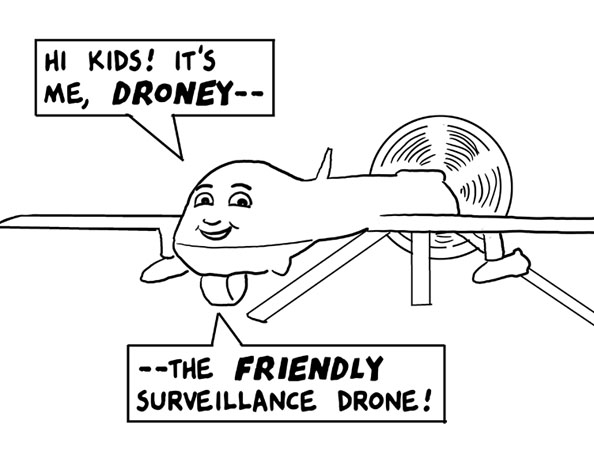Companies in Austin and Addison on Wednesday became the first two firms to become officially credentialed to operate unmanned aircraft systems under a new training and safety program that officials said promises to boost Texas’ place in the emerging drone market.
At a statewide conference hosted by the Texas A&M University System’s Corpus Christi campus and its engineering extension service, officials presented HUVRdata, of Austin, and Aviation Unmanned, of Addison, with their certificates, among the first granted in the nation since the Federal Aviation Administration announced new rules governing the use of drones.
The new program, though voluntary, provides a way for drone operators who register with the Federal Aviation Administration to become certified in safety and operational procedures, a step advocates say will be key to expanding the commercial applications of low-level unmanned aircraft without endangering commercial air traffic or clogging airspace since drone use mushroomed in recent years.
Under current FAA rules, “it’s like getting a tag for your car but not having to get a driver’s license,” said Joe Henry, director of outreach and commercialization at the Lone Star UAS Center for Excellence and Innovation, which is part of new program. “This certification is the driver’s license.”
“Through this credentialing program that will ensure the safety of operations for unmanned aircraft systems, Texas is in a position to be a leader in this emerging industry,” he said.
With the new credentials, which the A&M center and similar programs in five other states have been approved to grant, conference officials said operations safety can be assured, a step that will allow the drone industry to grow as more companies find ways to utilize the technology, and perhaps slow a surge of new state laws aimed at privacy and safety issues.
[…]
In Texas, drones already are used by the wind-power, oil and gas and transportation industries to provide aerial inspections and mapping, and for port and border security and coastline monitoring. As a business hub for many of those concerns, as well as home to the NASA’s Johnson Space Center, which is developing unmanned craft to explore Mars, Houston stands to be a center for the growing industry.
“If you have a public company that’s trying to integrate this new technology into their operations, they want to make sure that whomever they hire to do that work is qualified to it properly and safely,” said Bob Baughman, CEO and founder of HUVRdata. “This credentialing program is important because it’s an industry partnership with the FAA to make sure that operators know the FAA rules, know how to safely operate their UAS, and so companies know who is certified and qualified when they hire them. As this technology develops, as UAS isused more, credentialing will become even more important.”
Drones have also been used by, among other things, environmental scientists to track bird habitats and invasive species, and S&R groups like Texas EquuSearch, which had to fight for their right to employ them. They’re employed for movie and TV filming as well, as the Mythbusters can attest. The drone has flown, so it’s a matter of how we regulate them now. I won’t be surprised to see this issue come up in the 2017 Legislature.

